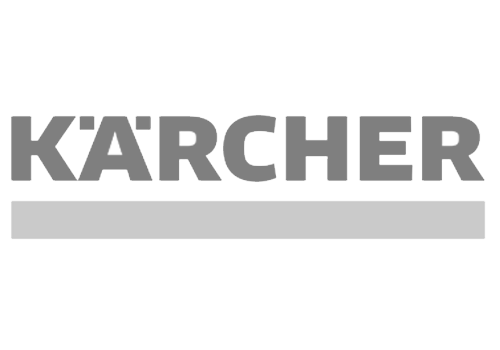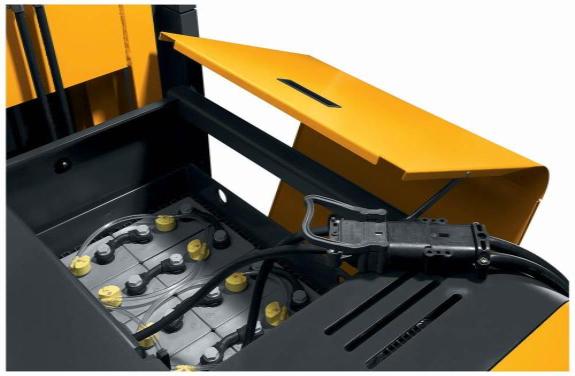
Whether you’re just starting out in the distribution and supply chain or your business has been in operation for decades, your lift truck power source can greatly influence your productivity, safety and overall fleet costs. With technologies rapidly advancing and with many options to choose from, it’s important to stay informed in determining the right battery or power source for your particular application.
Forklift Battery Types
Depending on the type of battery you choose to power your material handling fleet, you can achieve a wide range of benefits. There are four popular types of lift truck batteries.
Lead-acid Forklift Batteries
This power supply in various configurations, contains plates of lead oxide, plates of spongy lead, and an electrolyte solution of water and sulfuric acid. These substances interact to power your lift truck without producing harmful emissions.
NexSys® Thin Plate Batteries
These batteries use 99% pure lead and highly refined sulfuric acid to provide dependable power for your fleet, eliminating the need for watering, long recharge times, and more.
Lithium-ion Forklift Batteries
Using positive electrodes, negative electrodes, and electrolytes, this type of lift truck battery provides power that is both long-lasting and energy-efficient.
Hydrogen Fuel Cells
This power source utilizes a chemical process to efficiently convert hydrogen-rich fuel into electricity for your lift truck.
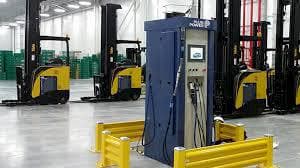
Which Forklift Battery Type Should You Choose?
Depending on the industry, the size of your operation, make up of your forklift fleet or specific facility characteristics, there are distinct advantages and disadvantages between the different power options.
Factors To Consider
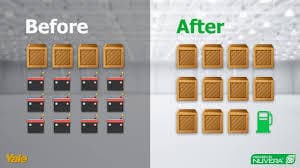
Available Space
With the prices of commercial spaces and warehouses steadily increasing in recent years, the success of your business can be greatly impacted by your use of space. Some batteries, on the other hand, pose spatial challenges, requiring a significant amount of indoor space to store, charge, and change.
If your internal space is limited, consider employing hydrogen fuel cells to power your equipment. Since their fueling infrastructure can be placed outdoors, they encompass less indoor space, allowing you to optimize your revenue-generating operations.
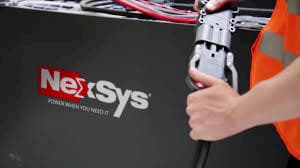
Desired Charging Time
Nothing slows productivity down more than waiting for forklift batteries to charge fully. In response to this, many manufacturers have sought to decrease the charging times of their products, helping maximize their customers’ productivity.
These battery types include the NexSys® thin plate battery, which boasts not only a fast charging time but also flexibility, allowing for seamless 24/7 operations. As another time-saving option, lithium-ion batteries offer quick, convenient charging but with automatic equalization, significantly saving on maintenance time.
Maintenance Availability
Performing the proper maintenance and a disciplined watering and charging routine for most Lead Acid Batteries is key to extending the life of the battery and protecting your equipment. This requires your labor force to focus time away from your core business. Labor productivity can be adversely affected by complex maintenance requirements. Many newer power technologies exist that offer different levels of “maintenance free” opportunities. This can have a major impact on battery life and productivity.
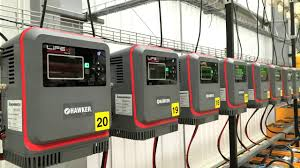
Emissions
Today every company is looking for ways to lower their greenhouse gas emissions. Many of the new technologies like Lithium Ion and Hydrogen Fuel Cells greatly lower reduce environmental impact.
Power Your Fleet with Barclay Brand Ferdon
By choosing the right power source, you can have a direct, positive impact on your company’s productivity, safety, environmental initiatives and bottom line. For more help targeting the best forklift battery option for you, contact Barclay Brand Ferdon to learn more and to request a free quote.






